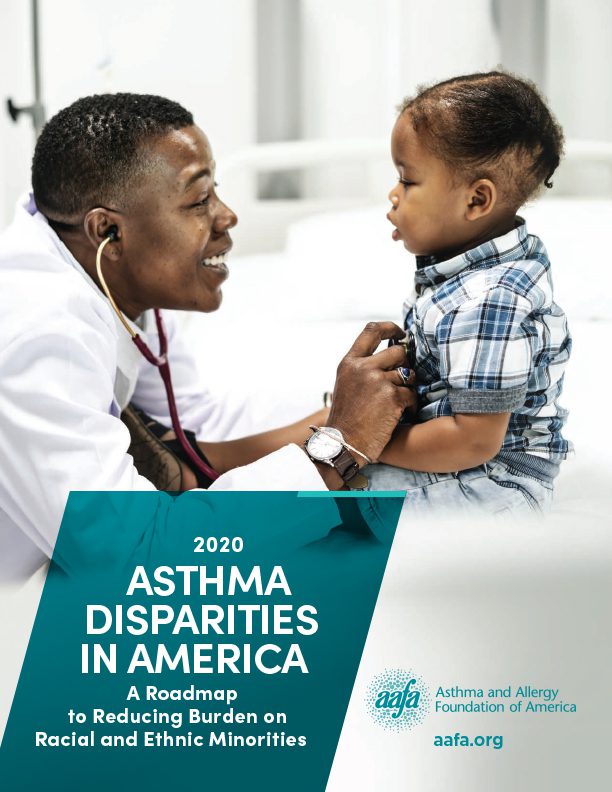Advocacy
Access to Health Care
Access to quality, affordable health care is critical to managing asthma and allergies and having better quality of life.
Some of the barriers that can make it hard for people to get health care include:
- Lack of health insurance
- Limited health care resources
- Poor access to primary and preventive care
- Unreliable transportation
- Language barriers
- Inability to take time off work
The Asthma and Allergy Foundation of America (AAFA) supports policies that address these barriers. We work to ensure people in the U.S. have access to affordable, comprehensive health insurance coverage. Health insurance should not be limited by pre-existing conditions or socio-economic status, gender, age, race, or ethnicity.
Access to Comprehensive Insurance Coverage
Comprehensive coverage rests on laws and policies that preserve access in the private health insurance market, as well as in Medicaid, Medicare, and other public programs. AAFA supports policies that:
- Reduce barriers to access to care, including the cost of prescription drugs outside of a health plan deductible.
- Cut down cost sharing for patients. For example, when possible, AAFA supports the use of low copayments instead of coinsurance.
- Enforce requirements that prevent plans from “discriminatory tiering,” such as placing most or all drugs for certain conditions in high-cost tiers.
- Ban “copay accumulators” that limit how much patients can benefit from drug manufacturer assistance programs. When plans apply a “copay accumulator,” they don’t include the amount of any coupon used when calculating a member’s deductible. This makes it harder for a patient to ever reach the deductible. It also keeps out-of-pocket costs high. AAFA supports state laws that restrict the use of copay accumulators. We would support a federal policy that would prevent this practice on the Affordable Care Act (ACA) marketplace.
Within the Medicare program, AAFA supports the establishment of an out-of-pocket maximum for the Part D benefit. AAFA also supports policies that would reduce financial liability for people enrolled in Part D plans. This would include a price ceiling for each Part D drug and require more information about drug pricing and other options in Part D explanation of benefits (EOBs).
AAFA also opposes restrictions on drugs under Part D plans that can keep people from getting the medicines they need.
Step Therapy
AAFA opposes the use of step therapy requirements that hinder medically appropriate access to medicine for asthma, atopic dermatitis, and other conditions.
Step therapy is a “utilization management” method used by insurance companies. Patients are required to try – and fail – one medicine or regimen before another can be covered. The approach is typically used to reduce plan costs by steering patients toward less expensive treatment.
Members of AAFA’s patient community need medicines to treat asthma, atopic dermatitis, and other related conditions. Often, patients have to work closely with their doctors to identify the right medicine for them. AAFA opposes step therapy requirements, in public or private insurance, which make it harder to access to the safest and most effective medicine as chosen by the patient and doctor.
Access to Telehealth
The use of telehealth services has increased a great deal since 2020. Telehealth can help more people access health care. It can also reduce disparities for people living with asthma or food allergies. But they need appropriate coverage and access to technology.
AAFA supports easy access to telehealth that ensures equal and appropriate access to health care services.
- Telehealth services should be covered by all health plans, including Medicare and Medicaid. Out-of-pocket costs should not cost more than in-person visits.
- Telehealth technology should be easy to use by people with disabilities, limited English, and limited technology. An audio-only option is key for rural and low-income communities and other people who may not have reliable access to the internet.
- Patients should be able to choose in-person visits or telehealth. In-person care should not be required before receiving telehealth services.
- Geographic restrictions – such as policies only covering patients in rural areas – limit patient access, especially to specialists, and should be removed.
- State licensure requirements should support delivery of telehealth to patients for continuity of care and for improved access.
How Can I Get Involved?
Advocacy is speaking out on issues that you care about or offering your opinion and suggestions for how to improve something to the people who are in control. It is important for policymakers to hear directly from you about your experiences.
Together, we need to find ways to address the complicated questions and issues related to asthma and allergies. You can take several steps towards advocating for access to affordable quality care right now.













